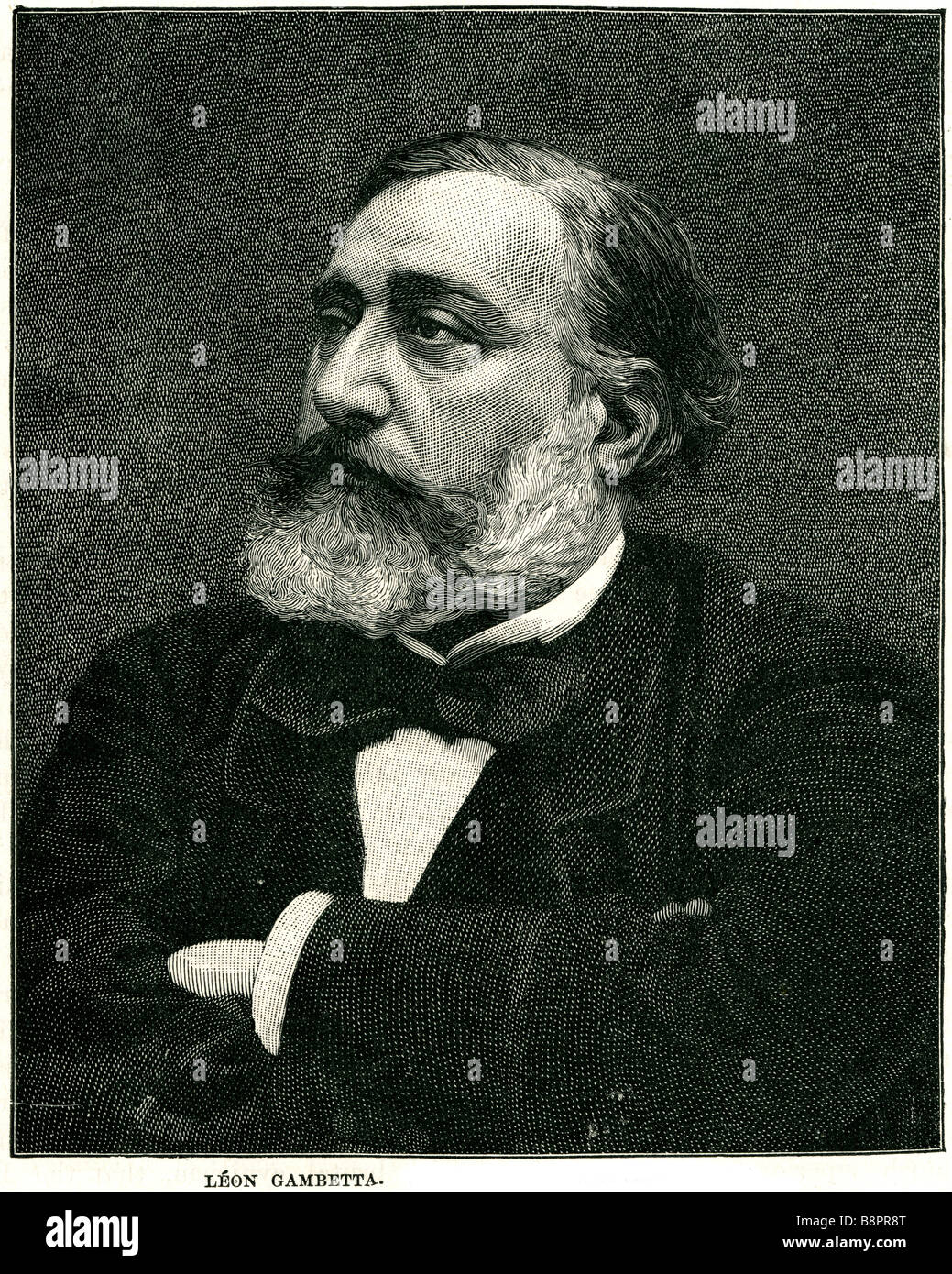Léon Gambetta 1838 1882 French statesman Franco-Prussian War 1870 Imperial Lord Privy Seal

Image details
Contributor:
19th era / Alamy Stock PhotoImage ID:
B8PR8TFile size:
51.2 MB (5.7 MB Compressed download)Releases:
Model - no | Property - noDo I need a release?Dimensions:
3782 x 4731 px | 32 x 40.1 cm | 12.6 x 15.8 inches | 300dpiMore information:
Léon Gambetta (2 April 1838, Cahors (Lot) - 31 December 1882, Sèvres) was a French statesman prominent after the Franco-Prussian War. On (17 January) (1870), he spoke out against naming a new Imperial Lord Privy Seal, putting him into direct conflict with the regime's de facto prime minster, Emile Ollivier. (see Reinach, J., Discours et Playdories de Léon Gambetta, I.102 - 113) His powerful oratory caused a complete breakdown of order in the Corps. The Monarchist Right continually tried to interrupt his speech, only to have Gambetta's supporters on the Left attack them. The disagreement reached a high point when M. le Président Schneider asked him to bring his supporters back into order. Gambetta responded, thundering "l'indignation exclut le calme!"(Reinach, Discours et Playdories, I.112) Gambetta had hoped for a republican majority in the general elections on 8 February 1871. These hopes vanished when the conservatives and Monarchists won nearly 2/3 of the six hundred Assembly seats. He had won elections in eight different départements, but the ultimate victor was the Orléanist Adolphe Thiers, winner of twenty-three elections. Thiers's conservative and bourgeois intentions clashed with the growing expectations of political power by the lower classes. Hoping to continue his policy of "guerre à outrance" against the Prussian invaders, he tried in vain to rally the Assembly to the war cause. However, Thiers' peace treaty on 1 March 1871 ended the conflict. Gambetta, disgusted with the Assembly's unwillingness to fight resigned and quit France for San Sebastián in Spain. While in San Sebastián, Gambetta walked the beaches daily, the warm sea winds of early spring doing little to refresh his mind. Meanwhile the Paris Commune had taken control of the city. Despite his earlier career, Gambetta voiced his opposition to the Commune in a letter to Antonin Proust, his former secretary while Minister of the Interior, in which he referred to the Commune as "les horribles av